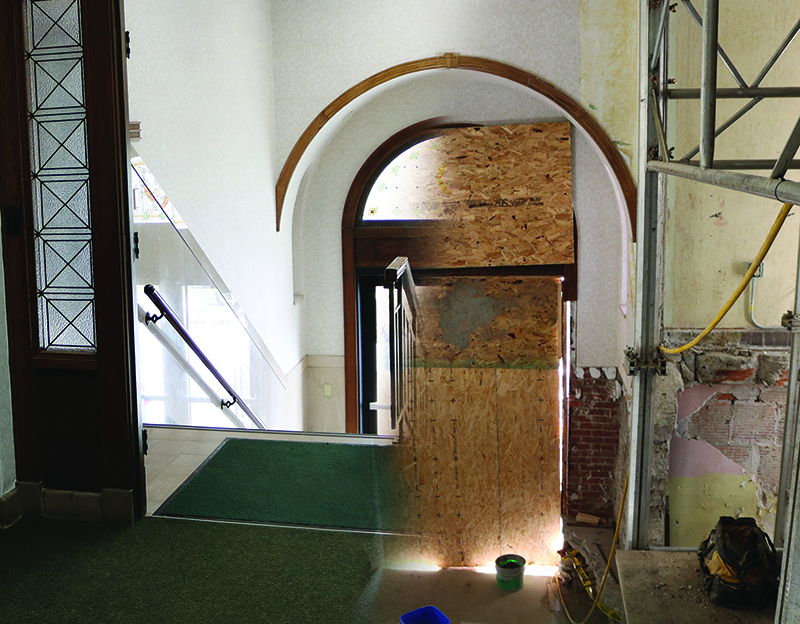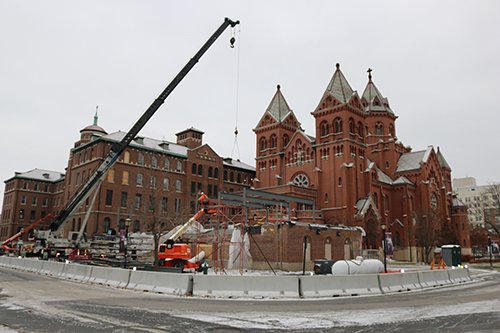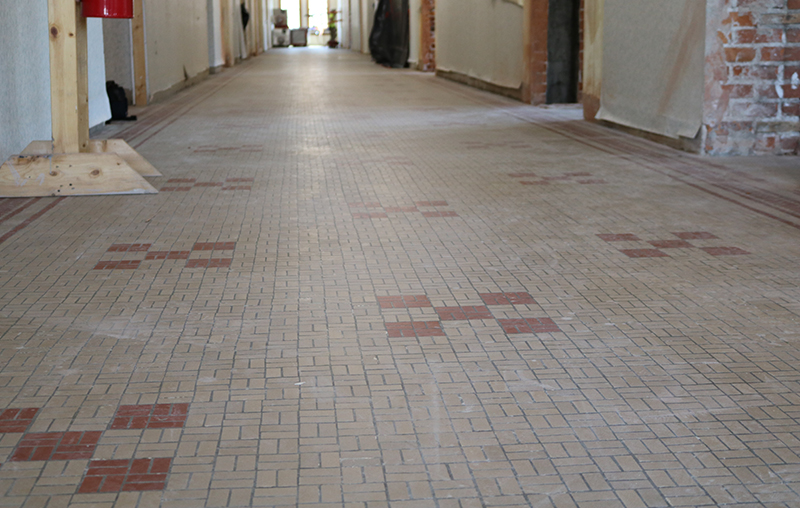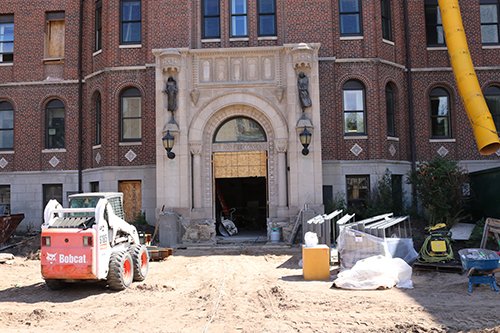Ecospirituality of change: St. Rose Complex renovation

As FSPA entered into the St. Rose Convent Complex Renovation last spring, shovels delving into the earth in the courtyard for the first time in what is to be a three-year ministry of restructuring relationship, Gospel living and unity in diversity with hammers and nails, we prayed to St. Joseph: “Continue to direct the designing of it all with concern for the environment …”
Infusing ecospirituality in the renovation is as paramount to FSPA as is the outcome of modernized care for the sisters who live there, improved accessibility for all those who come. Seeking to stamp every blueprint with ecological advocacy long before plans were drawn, FSPA went to work to find a collaborator. Hoffman Planning, Design & Construction, Inc. won the bid.
Based in Appleton, Wisconsin, Hoffman is the singular source for all phases of the project, beginning to end, committed to providing a sustainable and energy-efficient build through its “unique approach — Total Project Management: Vision Taken to the Power of Green.” Having served over 25 religious communities in creating worship spaces, retreat centers and “living spaces that promote aging in place in a household setting,” Hoffman’s purpose is to “help religious communities perpetuate their missions while having a positive impact on the environment.”

This eco-spiritual sensibility is the grounding factor for contracting with Hoffman. Says Franciscan Sister of Perpetual Adoration Sue Ernster, St. Rose Complex Renovation chair, “Sustainability is important to FSPA because of our value in all of life and creation. What affects the well-being of one impacts the well-being of all.” Hoffman follows the WELL Building Standard, an architectural benchmark focused on human health and wellness to improve sustainability, and is also LEED certified. “They are conscious of using environmentally friendly products and reusing as much as possible.”
By reusing the building shell and structure, energy and carbon emission from raw material extraction, production and transportation are reduced significantly. Additional efforts include recycling existing interior finishes, furniture, artwork, and wood trim, restoring mosaic tile flooring, and reusing mechanical equipment where efficient and applicable. New materials used, including steel framing and studs, ceiling tile, carpeting, carpet backing, floor tile and countertops, will be high in recycled content. Low/no VOC adhesive or paints are being used.

Many efforts build upon systems and practices already put in place by FSPA. Updated high-efficiency heating and cooling systems are being installed. They include a waste heat recovery system, air handling units and a kitchen exhaust system capable of running at 50% capacity when kitchen use is minimal. Heat recovery for undercounter dishwashers will also be implemented. The existing whole-building monitoring system will be expanded for optimal control of comfort and energy usage. Sensors that allow the HVAC system to adjust based on occupancy as well as programmable light controls are included in the design. Low-consumption shower heads and faucets will also be installed. Where replacement is required, new high-efficiency LED lamps will be installed. To promote health and well-being, lighting will feature warm colors. In the wellness building an auto-daylight tuning system will be used. Energy rebates will be submitted post-renovation.
New landscaping will address long-term resiliency, with 40% of new plants cultivars of native species. Access to outdoor spaces will be improved; the private, exterior courtyard will be enhanced, becoming an inspirational space for healing of body and mind. Inside, audio/video systems are being updated, increasing ability for virtual meetings and reducing transportation.
Finally, deconstruction is done in a sustainable manner. Recycling metals and salvaging items for re-sale or donation reduces the amount of debris sent to a landfill. Hazardous waste remediation practices are in place. Items like appliances, toilets and wood doors/frames have either been sold or donated to divert them from landfills.
Renovations include updated living quarters, modernized dining facilities and improved access to shared resident spaces for the sisters living at St. Rose. At the Franciscan Spirituality Center, private bedrooms for program and retreats guests as well as additional programming space will be added. Accessibility for people of all abilities will increase throughout the complex. The renovation proces is expected to last through 2021.

